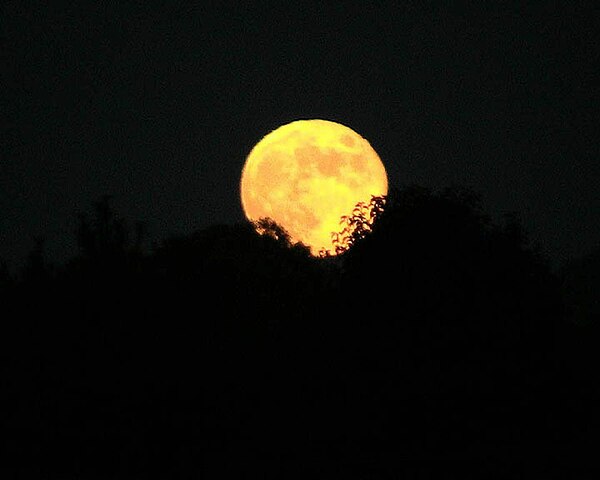
The Harvest Moon
The Harvest Moon And Its Cultural Significance
The Harvest Moon is the full moon closest to the autumn equinox (22nd September this year), typically occurring between late September and early October. This full moon is unique compared to others throughout the year. Normally, the Moon rises about 50 minutes later each day, but around the Harvest Moon in the Northern Hemisphere, the time difference between moonrises is much smaller. For instance, in Edinburgh, the Moon rises only about 10 minutes later each day, while in New York, located at a lower latitude, the difference is around 25 minutes.
Because the Moon rises at nearly the same time for several days, it can give the illusion of multiple full moons. However, many of us, me included, are so absorbed in our busy lives—often walking with our eyes on our phones—that we don’t register this unusual astronomical sequence. What we do often notice, though, is the large, low-hanging red super moon that appears just after sunset on the horizon during autumn. This reddish hue occurs because the full moon rises at sunset, and atmospheric refraction allows more red sunlight to pass through, giving both the moon and sky a reddish tint.
Historical Significance
In earlier times, solar and lunar events held great significance (like the “TV” of their day). Farmers took full advantage of the Harvest Moon’s extended moonlight, which enabled them to continue harvesting crops late into the evening. This is how the Harvest Moon got its name. Nowadays, farmers rely on powerful artificial lights attached to machinery, but the tradition of celebrating the Harvest Moon persists, often through spiritual, musical, and food festivals.
Influences In Asia
The Harvest Moon has helped shape culture and practices all around the world. In China, the Mid-Autumn festival, Zhongqiu Jie (中秋节) , also called the Moon Festival, is an official public holiday which fell on the 17th September this year, and is inspired by the Harvest Moon. This 3,000-year-old festival is rooted in moon worship, and it was historically seen as a way to ensure a bountiful harvest, a crucial ritual in times when food security was less stable. In Japan, moon-viewing festivals called Tsukimi (月見) or Otsukimi are also held to honour the autumn moon.
Korea also celebrates Chuseok, one of its most important holidays, on the 15th day of the 8th month of the lunar calendar on the Harvest Full Moon. Chuseok is a time for families to gather, pay respects to their ancestors, and share in the harvest’s bounty.
The Harvest Moon This Year
This year’s Harvest Moon will be partially eclipsed by the Earth, meaning 8.45% of the moon’s surface will be shadowed for about an hour or so. It is an extraordinary astronomical event that is certainly worth a view.
If you are interested in studying the subject of Science, Oxford Open Learning offer the chance to do so at IGCSE level, as shown below. You can also Contact Us.